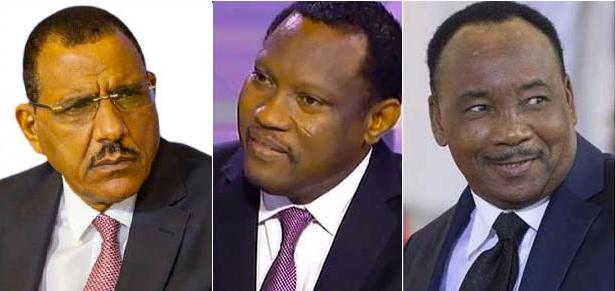Indigenous population argue that a ‘Saharan state’ is the only solution
Published on Thursday 30 June 2022 Back to articles
France’s proposed Organisation commune des régions sahariennes (OCRS) in 1957-1959
During the past month, we have been talking to a number of local indigenous leaders in the Sahara and Sahel to try and assess their views on the current war in the Sahel and how it might be resolved.
By indigenous, we are referring to the populations that have existed in these region in early pre-colonial times. In terms of ethnic/tribal groups, we are talking about:
- the various Tuareg confederations of southern Algeria, southwest Libya, northern Mali and northern Niger;
- the Toubou (Kanuri and Teda) of Niger and possibly also northern Chad; and
- the various long-established Arab tribes such as the Kounta, Berabiche and Lamhar.
The latter are invariably known as the Tilemsi Arabs because of their location in the Tilemsi valley, which runs north-south, to the north of Gao and west of the Adrar-n-Iforas massif. All three of these groupings are Hassaniya-speaking Arabs which moved south into the Sahel between the 15th and 19th centuries. Today they are mostly found in southern Mauritania and northern Mali.
In the view of these local Saharan peoples the Sahel is fast becoming a collection of failed states and this is being evidenced by almost whatever index — military, economic, social — one choses to take. Their disintegration, with Mali and Burkina Faso in the lead, is a reality. The solution, in the eyes of local leaders, notably from the broadly indigenous populations, is that what they see as Saharan problems can only be resolved by the Saharan people.
However, the establishment of some sort of ‘collectivity of Saharan indigenous peoples’ involves a major rethink of the roles and even justification for: these nation states; regional bodies such as ECOWAS and the African Union; as well as the concepts of sovereignty and civil society organisation in regions such as the Sahel in which states have failed or are in the process of doing so.
The withdrawal of Western troops from Mali and the inability of Burkina Faso to control much of its territory is opening up an increasingly large area to extremist armed groups.
The latest violent protests of asylum seekers in Niger, notably in Agades, is the product of a failed European immigration policy, which has sought to push responsibility for its own border controls onto the Saharan states. They, in turn, tended to pocket the funds made available to them rather than use them for their intended purpose. One result, which is being demonstrated in Agades, is that such discontent is simply opening up more space for Islamist insurgents.
The developing hunger crisis across the Sahel requires increasingly large sums of financial aid to be directed into the region. However, because global food prices are rising faster than the increase in financial aid, more aid is buying less food which is a dangerous and unsustainable situation.
The replacement of Mali by Burkina Faso as the epicentre of the Sahel crisis is the first major step in the southward spread of jihadism from the Sahel into West Africa. The next step will be the redeployment of Western troops into the more politically justifiable coastal states such as Ghana in the case of UK troops, and Côte d’Ivoire.
This excerpt is taken from Sahara Focus, our monthly intelligence report on the Sahara region. Click here to receive a free sample copy.The June 2022 issues of Sahara Focus also includes the following:
Sahel
- Indigenous population argue that a ‘Saharan state’ is the only solution
- Allegations of an Algerian-Moroccan proxy war
- Only the Saharan peoples can manage the region’s problems
- Memories of the France’s proposed OCRS
- EIGS is expanding as its massacres mount
- Trans-Saharan Gas Pipeline (TSGP) is still on the table
Mali
- Europe faces dilemma over continuing its security commitments
- Regime announce two-year transition before elections
Niger
- ECOWAS supports government in 2021 election case
- Violent protest by asylum seekers in Agades
- Eight gendarmes and 50 terrorists killed
- Niger punished by funding cuts for fossil fuel projects
Chad
- Chad declares a food emergency crisis
- Anti-French demonstrations have serious political consequences
- Around 100 people die in clashes between gold miners
- Political tensions hinder ExxonMobil-Savannah transfer
Mauritania
- Former president Mohamed Ould Abdel Aziz referred to Criminal Court
- National Dialogue is suspended
Burkin Faso
- Burkina Faso becomes epicentre of the Sahel crisis
- EU provides US$5.4 million to combat food insecurity



